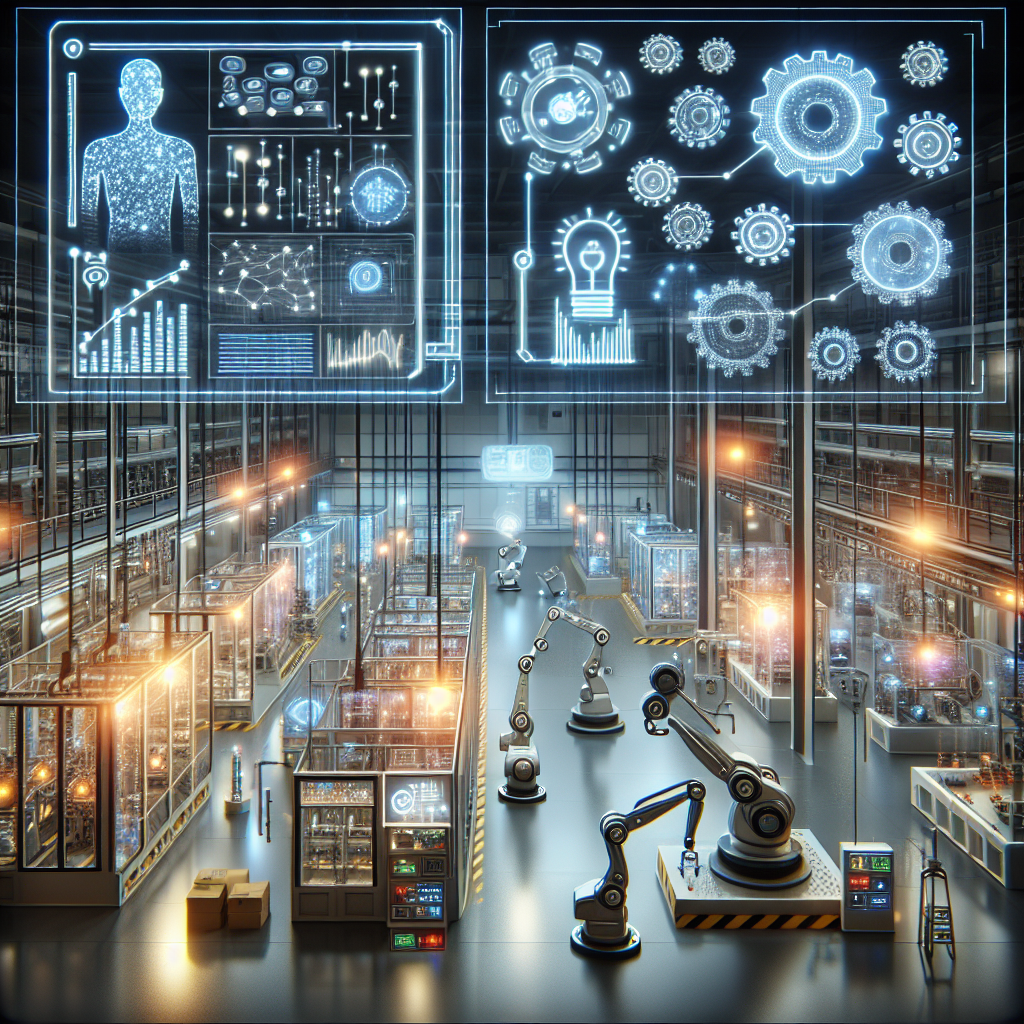Machine learning has been a game changer in almost every industry, and manufacturing is no exception. With the ever-increasing demand for efficiency, quality, and cost-effectiveness, manufacturers are turning to machine learning to revolutionize their processes and stay ahead of the competition.
Machine learning, a subset of artificial intelligence, enables machines to learn from data and make predictions or decisions without being explicitly programmed. In the manufacturing industry, machine learning algorithms can analyze vast amounts of data to identify patterns, optimize processes, predict maintenance issues, and improve overall performance.
One of the key benefits of machine learning in manufacturing is predictive maintenance. By analyzing historical data from sensors and equipment, machine learning algorithms can predict when a machine is likely to fail, allowing manufacturers to address issues before they become critical. This not only reduces downtime and maintenance costs but also improves overall equipment effectiveness.
Another area where machine learning is making a significant impact is quality control. By analyzing data from sensors, cameras, and other sources, machine learning algorithms can detect defects or anomalies in real-time, allowing manufacturers to take corrective actions before products are shipped to customers. This not only improves product quality but also reduces waste and rework.
Machine learning is also being used to optimize production processes. By analyzing data from sensors, machines, and other sources, machine learning algorithms can identify bottlenecks, inefficiencies, and opportunities for improvement. This allows manufacturers to optimize their production schedules, reduce cycle times, and increase overall productivity.
In addition to predictive maintenance, quality control, and process optimization, machine learning is also being used in supply chain management, inventory management, demand forecasting, and other areas of manufacturing. By analyzing data from across the supply chain, machine learning algorithms can optimize inventory levels, reduce lead times, and improve overall efficiency.
Overall, machine learning is helping manufacturers to drive innovation, increase efficiency, and stay competitive in today’s fast-paced market. By leveraging the power of data and algorithms, manufacturers can unlock new insights, improve decision-making, and drive continuous improvement across their operations.
Frequently Asked Questions (FAQs):
Q: What are some examples of machine learning applications in manufacturing?
A: Some examples of machine learning applications in manufacturing include predictive maintenance, quality control, process optimization, supply chain management, inventory management, and demand forecasting.
Q: How can machine learning help manufacturers improve efficiency?
A: Machine learning can help manufacturers improve efficiency by analyzing data to identify bottlenecks, inefficiencies, and opportunities for improvement. By optimizing production processes, reducing downtime, and minimizing waste, manufacturers can increase overall efficiency and productivity.
Q: What are the challenges of implementing machine learning in manufacturing?
A: Some of the challenges of implementing machine learning in manufacturing include data quality issues, lack of expertise, resistance to change, and integration with existing systems. However, with the right strategy and support, manufacturers can overcome these challenges and unlock the full potential of machine learning.
Q: How can manufacturers get started with machine learning?
A: Manufacturers can get started with machine learning by identifying their business goals, collecting and preparing data, selecting the right algorithms, and building models. It is also important to work with data scientists, engineers, and other experts to ensure successful implementation and adoption.
Q: What are the benefits of using machine learning in manufacturing?
A: Some of the benefits of using machine learning in manufacturing include improved efficiency, quality, and cost-effectiveness. By analyzing data, identifying patterns, and making predictions, machine learning can help manufacturers optimize processes, reduce downtime, and drive continuous improvement.
In conclusion, machine learning is a game changer in manufacturing, offering manufacturers the opportunity to drive innovation, improve efficiency, and stay competitive in today’s fast-paced market. By leveraging the power of data and algorithms, manufacturers can unlock new insights, optimize processes, and drive continuous improvement across their operations. With the right strategy and support, manufacturers can harness the full potential of machine learning to transform their businesses and thrive in the digital age.

